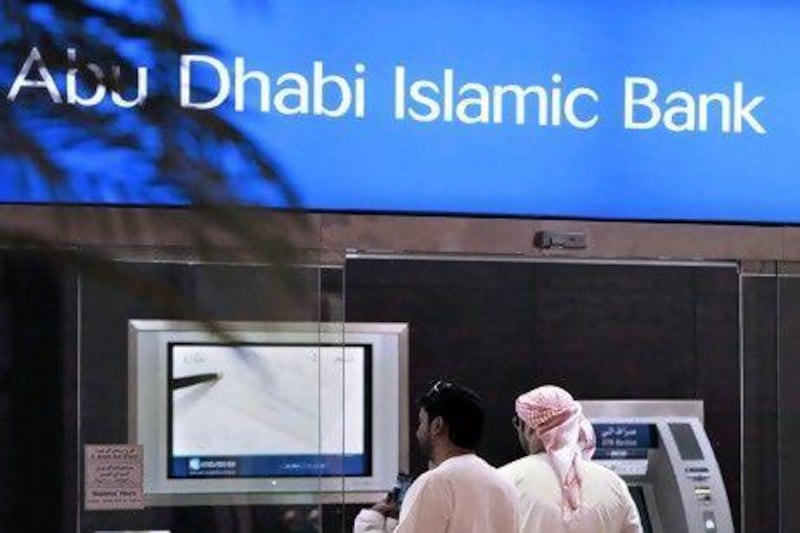Fund managers are warning the region's most profitable companies to pay big dividends or risk losing investors.
The alert comes on the eve of earnings reporting season, when major companies such as Etisalat and Abu Dhabi Islamic Bank among others decide what to do with a year's bumper revenues.
"Companies who have decent balance sheets, cash flows and were growing this year and opt not to give attractive dividends will be penalised," said Haissam Arabi, the chief executive of Gulfmena Investments, an asset management company based in Dubai.
Last year, regional stock markets were shorn of more than US$50 billion (Dh183.65bn) of value, buffeted by the Arab Spring and Europe's debt crisis.
In the UAE, the Abu Dhabi Securities Exchange General Index and the Dubai Financial Market General Index lost 11.6 per cent and 16.9 per cent, respectively and Dubai stocks closed yesterday at their lowest level in seven years. Valuations of UAE companies are the lowest in the region - barring Egypt after the revolution there last year.
Yet despite the price drops, many investors held their stocks with the expectation of dividend yields of 4.5 per cent to 5 per cent.
"If dividend yields are disappointing, you will see more investors turning to sukuk or fixed income, where many of the UAE quasi government-related companies pay out an annual coupon of up to 6 per cent," said Sebastien Henin, a portfolio manager at The National Investor in Abu Dhabi.
After the $24.9bn Dubai World debt restructuring finalisation, corporates and government-related companies in the region have paid higher yields compared with other markets as the risk appetite of global investors has waned.
Pacific Investment Management Company, one of the world's largest money managers, on Tuesday launched two dividend-focused equity funds, the Pimco EqS Dividend Fund and the Pimco Dividend and Income Builder Fund.
First Gulf Bank has reported increased trading activity of late after JPMorgan Chase said the lender controlled by Abu Dhabi may pay a higher dividend for last year. Investors are also watching for cues from Etisalat, Abu Dhabi Islamic Bank, National Bank of Abu Dhabi and Air Arabia, which have a reputation for paying bigger dividends than many of their locally listed peers.
"There are various funds that track these stocks," said Saleem Khokhar, the head of equities at National Bank of Abu Dhabi. "Those that underperform would be gradually phased out over the next quarters."
Many companies are unlikely to yield to investor demand and may opt to reserve cash amid a depressed global economic outlook, says Mohammed Ali Yasin, the chief investment officer at CAPM Investment in Abu Dhabi.
Real GDP growth is forecast to slow to 2.5 per cent this year from an expected 4.6 per cent last year, according to Emirates NBD.
"It's going to be a tug of war. In good times, companies distribute cash. In times of uncertainty they may distribute bonus shares and or cash," Mr Yasin said. "However, at a time where equities have already underperformed, issuing more shares is only likely to put more pressure on the market."
The economy continues to be weighed down by a weak property sector, which accounts for most of the trading on the country's stock exchanges.
Aldar Properties, Sorouh Real Estate, Eshraq Properties and RAK Properties are listed on the Abu Dhabi bourse, while Emaar Properties, Deyaar Development and Union Properties are listed in Dubai. Investors do not expect dividends from property companies.
"You have to be realistic," Mr Arabi said. "You cannot expect these companies to pay, because many are restructuring and require ongoing cash injections and [are] dealing with low revenues."





